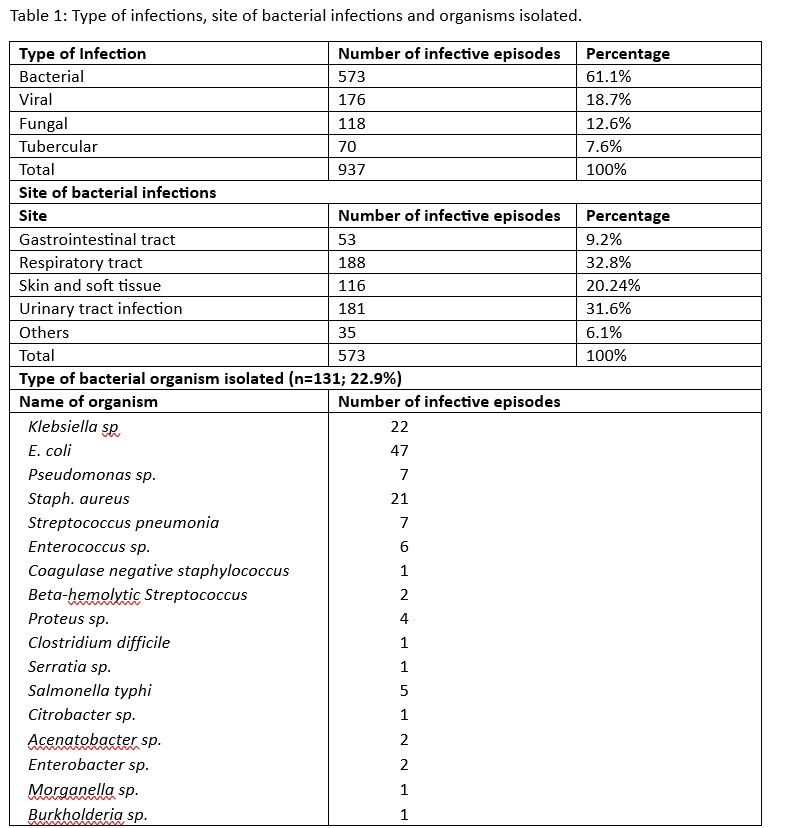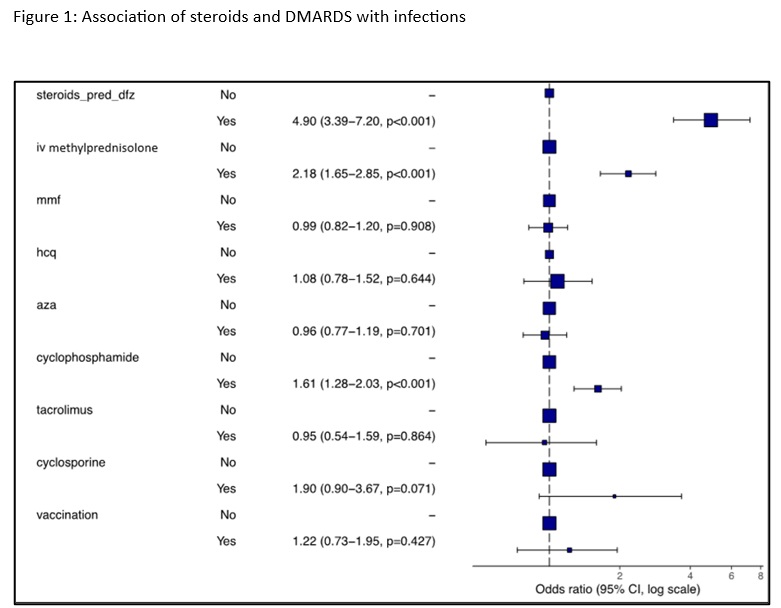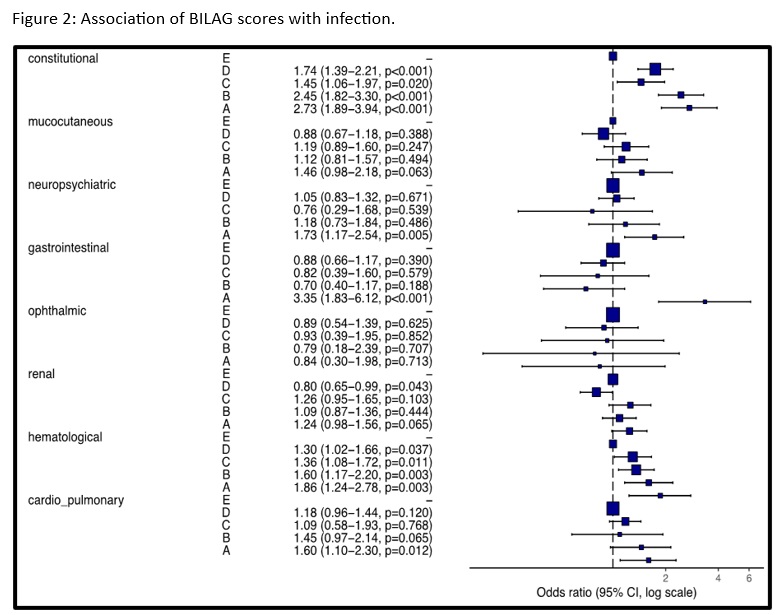Session Information
Session Type: Poster Session B
Session Time: 10:30AM-12:30PM
Background/Purpose: Infections in SLE are a major cause of morbidity and mortality. The susceptibility to infections in SLE is multifactorial. Immune dysregulation, immunosuppressive drug use and disease activity are important factors contributing to infections in SLE patients. The Indian SLE Inception cohort for Research (INSPIRE) cohort is a multicentric inception cohort of SLE patients from India. The current study describes the profile of infections and analyses the various factors that predispose to infections in SLE.
Methods: The INSPIRE cohort enrolled patients with SLE fulfilling SLICC 2012 criteria between August 2018 to October 2022. The database was accessed on April 1, 2024, and data on infections occurring within the first 2 years of follow up were recorded with respect to site and type of infections, organism isolated, and outcome. In addition, demographic and other clinical data was also analysed as predictors of infections. The disease activity was assessed using BILAG every 6 months. The use of steroids, DMARDs, and BILAG at the time infection was analysed using multiple logistic regression analysis. The SLEDAI2K of patients with and without infections was compared using Student’s unpaired t-test.
Results: Among 2503 patients (mean age 27.7±10.2 years, median disease duration of 10 (4-24) months, 2291 females). The M:F ratio was 10.8:1.
The total number of infective episodes were 937 during the 2-year follow-up (3552 patient-years). Therefore, the incidence of infections was 26/100 patient-years. The number, type and site of infective episodes are shown in table 1. The most common infection was bacterial (61%): bacterial infections were E coli, Klebsiella, and Staphylococcus aureus. The common sites of infection were the respiratory tract (33%) followed by urinary tract (32%) (table 1). Tuberculosis was seen in 7.6%. Among opportunistic infections herpes zoster (n=108; 11.5%) and candidiasis (n=79; 8.4%) were common. Hospitalization for infections was required for 376 (40%) patients. Mortality due to infections occurred in 36 (3.8%) patients. Use of corticosteroids and cyclophosphamide, were associated with higher chance of infections (Figure 1). Infections were more common in patients with constitutional, neuropsychiatric, gastrointestinal, hematologic, and cardiopulmonary domains affection, but not with mucocutaneous and renal domain (figure 2). The mean SLEDAI-2K of patients with infection was higher than patients without infection (14.27±9.53 vs 13.3±7.74; p=0.022).
Conclusion: Gram negative bacterial infections are the most common infections in admitted SLE patients. Tuberculosis is a major concern in Indian SLE patients. Corticosteroids, methylprednisolone pulse and cyclophosphamide predispose patients to infections.
To cite this abstract in AMA style:
TRIPATHY S, PANDIT D, Pattanaik S, Rajasekhar L, SHOBHA V, Kavadichanda C, Mathew A, Ghosh P, Gupta R, Rathi M, JAIN A, PARIDA M, Das B, Aggarwal A. Real World Data on Infections from the Indian SLE Inception Cohort for Research (INSPIRE): Spectrum and Risk Factors [abstract]. Arthritis Rheumatol. 2024; 76 (suppl 9). https://acrabstracts.org/abstract/real-world-data-on-infections-from-the-indian-sle-inception-cohort-for-research-inspire-spectrum-and-risk-factors/. Accessed .« Back to ACR Convergence 2024
ACR Meeting Abstracts - https://acrabstracts.org/abstract/real-world-data-on-infections-from-the-indian-sle-inception-cohort-for-research-inspire-spectrum-and-risk-factors/



